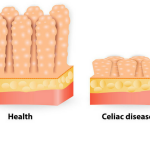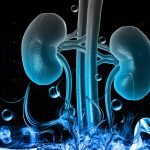New Protein Biomarker Identifies Brain Damage Post-Concussion
Concussions are now the focus in many contact sports as we learn more about the long term effects and damage that can occur. Even mild concussions can produce long-term cognitive impairments. A study out of the University of Pennsylvania and the University of Glasgow examined how these cognitive impairments occur. A protein called SNTF is raised in the blood following concussions, and it is thought that this protein is the signal for these types of long-term cognitive impairments.
Mild concussions, which consist of brief losses of normal brain functioning, are the most common forms of traumatic brain injuries. They often go overlooked and even when patients seek medical attention, there is little conventional medicine has to offer as treatment. Although most individuals recover from concussions, new research is showing that one in five patients will suffer long-term cognitive impairment lasting months or even years.
Until recently, the mechanism of how this impairment occurs has not been understood. Magnetic resonance imaging (MRI) and computerized tomography (CT) scans rarely even show bruising, bleeding, or any other structural abnormalities with these mild brain injuries. However, new findings and clinical evidence suggest that similar types of diffuse axonal injury normally seen with severe brain trauma can still occur with mild concussions, but to a lesser degree. Axonal injury occurs from sudden movement to the brain, which then stretches axon bundles. This stretching leads to an influx of sodium and calcium ions, which with time will be pumped back out of the cell and regain normal functions. However, in some axons, calcium levels fail to return to resting values, and the higher than normal levels trigger self-destruction processes. This self-destruction ultimately leads to the nerve fibers being severed, and permanent damage occurring. When this nerve damage occurs, a protein called SNTF is released. Levels of this protein tend to be raised following a concussion, and are higher in individuals who later suffer from greater cognitive dysfunction. In addition, when the brain is stained for SNTF presence, it is largely found in regions of injured axons.
http://www.sciencedaily.com/releases/2015/11/151123202812.htm










